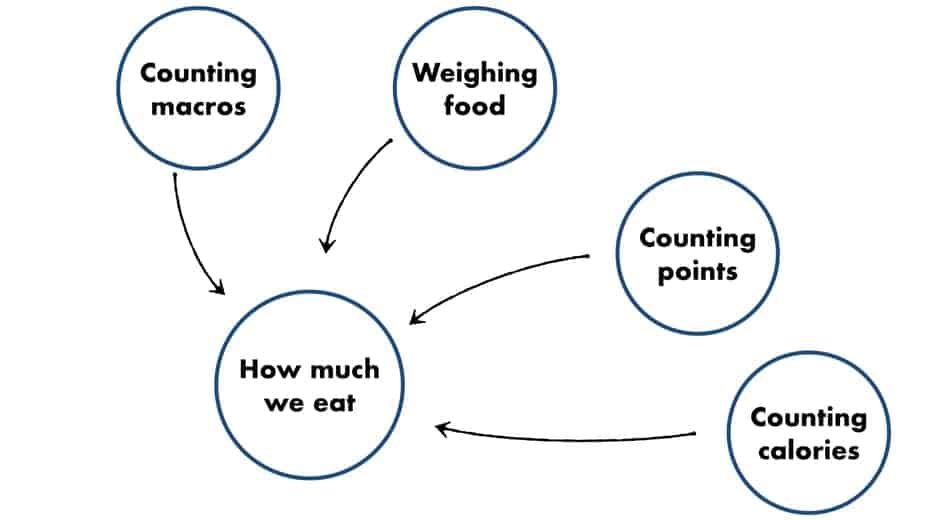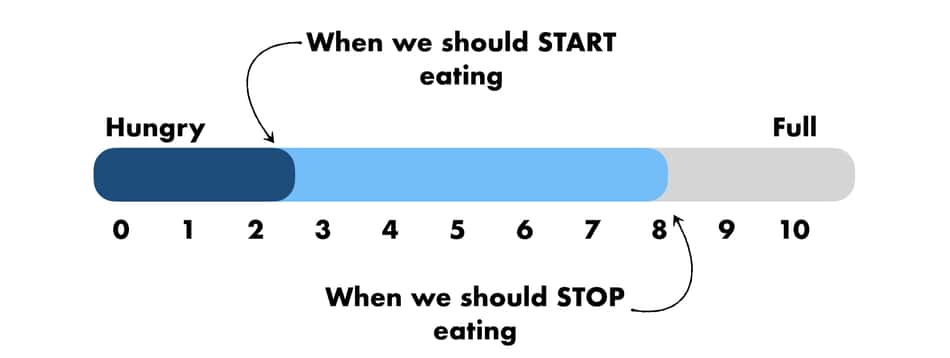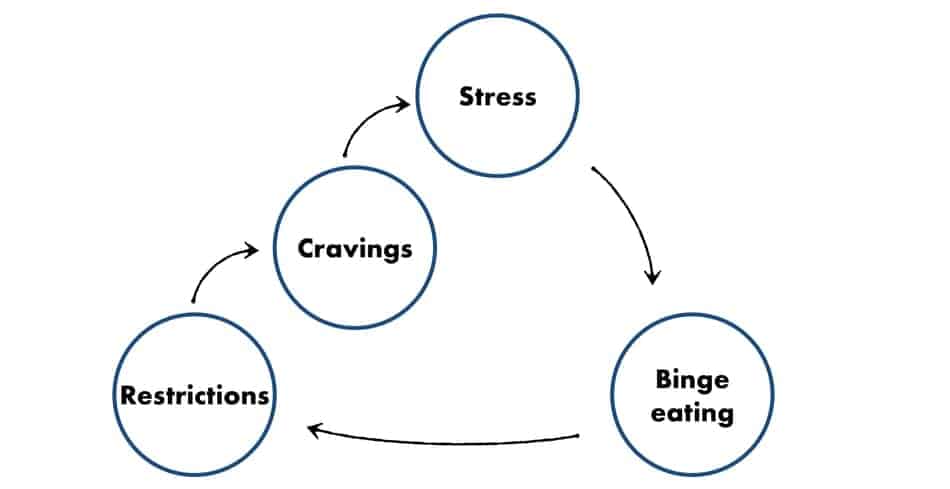If your goal is to get to calorie deficit than counting calories is one of the many methods to know how much food you need to eat. However, should you count calories from vegetables?
You should count calories from vegetables to get the most acuate information about how much energy you eat. But realistically, counting calories from vegetables can get overwhelming quickly, and instead of focusing on eating healthy, you’re focusing is on the numbers.
Plus, there are other methods to follow if you wanna be in calorie deficit, without counting calories.

Should You Count Fruit And Vegetable Calories?
You should count fruit and vegetable calories if your goal is to get precise data about your calorie intake. This data can be used to track what you eat and make necessary adjustments. However, to reduce food intake, counting calories is just one of many ways to know how much food you eat.

Apart from counting calories, you can also use a food scale, portion sizes, plate sizes, counting points, etc. Those are all great ways to know how much food you eat.
It can create some confusion.
For instance, should you weigh a potato before or after cooking?
But the thing is that they are not required to lose weight.
You can rely on your own body signals to know when to eat and when to stop eating.
You don’t need a fancy tracker to do so. Just like when you bump yourself in the elbow, you know it hurts. You don’t need your phone to tell you that.
The same with hunger and satiety.
You should be able to tell exactly when to eat, and when to stop eating, without worrying about weight gain. This is called intuitive eating (source).

You should start eating when you’re physically hungry, and stop eating when you’re satisfied, not full.
The challenge with intuitive eating is that it requires mindfulness.
This means being present in the moment.
Because when you’re present at the moment, you pay attention to your body signals, to your hunger signals, to your appetite, and your thoughts around food. Basically, you’re fully in control.
Should I Count Calories Or Just Eat Healthy?
You should just eat healthy, instead of counting calories. Counting calories is a great tool to know exactly how many calories you eat. But focusing on calories alone can influence your choices towards only low-calorie foods instead of foods that you like and enjoy.
And over time that can create some irrational beliefs that low-calorie foods and “good” and high-calorie foods are “bad”.
Which is a mistake.
Because now you giving up the pleasure of eating foods that you like in favor of fat loss, which can be done without being numerically oriented.
Counting calories is a great way to gather information. For instance, if you’re feeling lethargic throughout the day, and after counting your calories you’ve discovered that your daily intake is around 500 calories then you know what’s the problem.
But the problem starts when you’re relying on the calories as your main driver to make a decision rather eat something or not (source).
This is what I used to do.
I would choose my foods based on the number of calories. And as soon as I eat something “bad”, which means it had “more” calories than usual, I would feel bad about myself.
And once I felt bad, now I would tighten up the screw even more and restrict my calories even further. I would weigh my foods, dissect skin from chicken, throw out egg yolks, eat only brown rice and brown pasta.
But the more I did that, the more I felt cravings for other foods.
And with time, those cravings would evolve into stress.
And with more stress, eventually, I would break down and raid my pantry or refrigerator.

Which would make me feel bad again. So the cycle starts from the beginning.
Related article: Should I Eat The Same Amount Of Calories As My BMR?
Does It Matter What You Eat If You Count Calories?
It does matter what you eat if you count calories because the food ratio can influence your hunger and appetite. Foods that are high in protein have the highest satiety score and will reduce your appetite. Foods that are high in fat have the lowest satiety score and will increase your appetite.
You may think that as long as you’re under your calorie and you hit that deficit, you can eat what you want. Which is true. At least for the short time.
But in the long haul, if you eat crap without any nutrients, your body will start to compensate with energy. You wake up in the morning, need to hit the snooze 4 times before you roll out of bed.
You feel tired, despite 8 hours of sleep. You get to work feeling like crap. At 2 pm you’re ready for the nap. So you drink another coffee.
And this cycle goes on and on until you crack under pressure and binge.
So the quality of food matters, even when you count calories. For instance, high-protein foods not only will help you will stabilize your energy levels, but also will give you more satiety throughout the day (source). So you won’t feel like needing a snack or a latte.
Do Carbs Matter When Counting Calories?
Carbs do matter when counting calories because one gram of carbs has 4 calories. Counting calories is a tool to know the amount of energy consumed. Not including carbs in the calculations will lead to the discrepancy, and inaccurate information can create misleading results.
In other words, if you’re choosing to count calories, even as an experiment, it is much better to know all of the numbers, including calories from carbs. Because if you skip carbs, you may think that you’re in a calorie deficit, wherein the reality you’re already over.
And then you’re wondering why you’re not losing weight, despite counting calories.
So the get the most accurate data you need to count everything. Of course, some foods like lettuce or spices are so ridiculously low on calories that there is no point in counting them.
But for most of the fruits, veggies grains and legumes, you should count everything.
Related article: Should You Eat The Same Amount Of Calories Every Day?
In Conclusion
There are several ways to stay within a calorie deficit. And counting calories is just a tool that can be used. But it’s not for everyone. Because in the long term it can create more harm than good.
However, if you’re choosing to count calories, then you cannot be delusional about it and include everything that you eat. That includes fruits and vegetables.
Frequently Asked Questions
Should You Count Lettuce Calories?
You shouldn’t count calories from lettuce because it only has 15 calories per 100 grams. Lettuce is a fiber-rich and water-rich vegetable with a low amount of calories, and because it’s usually used in a small quantity, most of those calories will get burned during the digestion process.
Should You Count Calories From Spices?
You shouldn’t count calories from spices because spices are used in relatively small quantities and they contain almost no calories. Some of the spices like black pepper, chili powder, or garlic contain around 5 calories per tbsp, which is gonna be burned during the digestion process.
